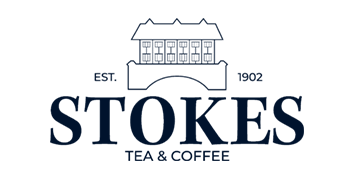Sustainability continues to be a hot-button topic as the world moves towards a more sustainable future. 2024 is set to be a pivotal year as businesses adapt to a wide range of incoming legislation on the horizon, designed to reshape the way companies approach environmental responsibility and reporting.
In this blog post, we’ll highlight the key sustainability legislation set to take centre stage in 2024, including the Corporate Sustainability Reporting Directive, the EU Digital Reporting (DR) Directive, the Carbon Border Adjustment Mechanism (CBAM), and more.
We’ll explore what’s happening, when, and who it applies to, as well as what you need to do to stay compliant.
Under the CSRD, large companies operating in the EU must publicly disclose information on the way they manage social and environmental risks. The directive has two main goals – to end greenwashing and standardise corporate sustainability reporting across the EU.
The EU sustainability reporting requirements apply to all large companies with more than 250 employees and a 40 million euro turnover.
Beginning in 2024, approximately 49,000 companies trading in the EU will now have to report their impact on the environment, human rights, social standards and work ethics using standardised data. CSRD will then expand to include all listed small and medium-sized enterprises for the 2026 financial year.
These annual CSRD reports need to cover the following areas:
The reporting must be qualitative and quantitative, be forward-looking and retrospective and cover short, medium and long-term considerations. In short, it’s a major piece of legislation with far-reaching implications!
The EU Deforestation Regulation (EUDR) comes into effect on December 31, 2024, and aims to drastically reduce the EU’s impact on global deforestation and forest degradation and cut the bloc’s carbon emissions by at least 32 million metric tonnes annually.
Under the legislation, all companies operating within the EU must demonstrate that their products and supply chains are free from illegal timber products and that no land has been cleared to cultivate them. It covers a huge range of businesses across seven key sectors, including cocoa, coffee, soy, wood, rubber, cattle, and palm oil. And it covers all products
derived from these commodities.
To adhere to the regulation, companies involved in importing or exporting any of those seven sectors within the EU must substantiate that their products and supply chains are deforestation-free, adhere to local social and environmental laws, and are covered by a due diligence statement indicating no more than a negligible risk of non-compliance.
The Carbon Border Adjustment Mechanism (CBAM) is the EU’s landmark tool to fight carbon leakage and will normalise the price of carbon between domestic products and imports. This standardisation ensures that all the EU’s climate policies will apply across every state nation, and pushes global industry towards greener and more sustainable technologies.
At the moment, the mechanism is in a transitional phase and only applies to cement, iron and steel, aluminium, fertilisers, electricity and hydrogen imports. The transitional phase runs until 2026 and requires that EU importers of those goods will have to report the volume of their imports and the GHG involved in their supply chain. From 2026 onwards, importers will need to buy and use CBAM certificates to cover their emissions.
The SDR applies to the UK’s asset management sector and is aimed at preventing greenwashing by ensuring that all ‘sustainability-related claims must be fair, clear and not misleading’ and that consumers are given increased access to sustainability data. The SDR is overseen by the Financial Conduct Authority (FCA) and includes the introduction of sustainable investment labels, an anti-greenwashing rule, limitations on using sustainability-related terms in marketing and product naming and disclosure requirements. The rules have now been finalised and are expected to come into effect during 2024.
The CSDDD will ensure that EU companies conduct reasonable due diligence in their business and value chains to minimise human rights and environmental risks.
The measures outlined by the CSDDD include integrating due diligence into policies, conducting risk analyses, preventing and mitigating adverse impacts, establishing a complaints procedure, monitoring effectiveness, and publicly communicating due diligence efforts.
The draft proposal was approved by the European Parliament in June 2023 and could come into force in early 2025 following a round of negotiations.
2024 – and beyond – is going to be an exciting and challenging time for companies as they adapt to a wide range of international sustainability legislation.
From standardising carbon emissions to far-reaching deforestation regulation, businesses will need to adapt – and adapt quickly – to comply with the incoming rules and regulations as the EU moves towards a more sustainable future.
Axiom will be on hand to ensure that our users are well-prepared for any legislative shifts that may come their way. Whether it’s circular economy regulations, biodiversity mandates, or emerging ESG standards, Axiom stands as your ally in navigating the evolving landscape of sustainability legislation.
We’ll help you identify, gather, analyse and report on all the sustainability legislation metrics that matter in 2024 and beyond.
AXIOM is a powerful cloud-based platform that helps your business monitor, analyse and improve sustainability performance.
While collecting such detailed and specific data may seem overly complicated, specialist sustainable software like AXIOM exists to make steps towards logistic sustainability easier.
Using specialist technology, we equip businesses with a tool which enables them to track their environmental and social performance whilst also improving governance – identifying and mitigating risks associated with business operations and relationships.
Are you looking to transform your supply-chain sustainability? Let us help, don’t hesitate to get in touch with us here.
Book your free demo here.


Want to know more? Please get in contact with our team here.
Contact Us